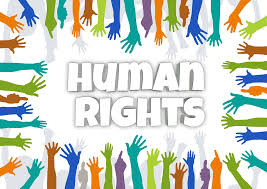Government enjoined by Constitution to protect human rights
The department said the government views Human Rights Day as a day of reflection by all people on progress made in entrenching human rights and recommit to doing everything possible to deepen these rights for all.

- Country:
- South Africa
As March marks Human Rights Month, the government has reiterated its unwavering commitment to advancing and protecting human rights.
“Government is enjoined by the Constitution to advance and to protect, without fear or favor, people's democratic values of human dignity, equality, and freedom in the execution of its mandate,” the Department of Arts and Culture said.
The department said the government views Human Rights Day as a day of reflection by all people on progress made in entrenching human rights and recommit to doing everything possible to deepen these rights for all.
The 1960s were characterized by systematic defiance, and protest against apartheid and racism across the country.
On 21 March 1960, the community of Sharpeville and Langa townships, like their fellow compatriots across the country, embarked on a march to protest against pass laws.
“The apartheid police shot and killed 69 of the protesters at Sharpeville, many of them shot while fleeing. Many other people were killed in other parts of the country. The tragedy came to be known as the Sharpeville Massacre, and it exposed the apartheid government’s deliberate violation of human rights to the world,” the department said.
The Minister of Sports, Arts and Culture, Nathi Mthethwa, said these painful events from the past are a constant reminder that many paid the ultimate price for a society governed by human rights and dignity for all.
“Since 1994, the democratic government sought to use these painful chapters of our past to unify South Africans. During this month and beyond, let us honor the heroes and heroines who suffered and died for justice and freedom in Sharpeville and Langa in 1960.
“Their selfless and courageous struggle for freedom and an end to pervasive human rights abuses of the apartheid government immensely contributed to the attainment of freedom in 1994,” Mthethwa said.
Since the advent of the new democratic dispensation, the country has made significant progress in advancing fundamental human rights and stabilizing racial tensions.
“However, much of South Africa’s challenges on human rights and inequality are still reflected in racial, class and gender fault-lines. High unemployment remains a serious challenge, not only in terms of economic development but also raises security issues.
“The majority of perpetrators of crimes such as rape, murder, aggravated assault, armed robbery, etc. is presumed to be the youth, and this is linked to lack of economic opportunities such as employment and low skill levels,” the department said.
The 2020 Human Rights Day Commemoration will take place on Saturday, 21 March 2020 at the Colesberg Sports Complex, Umsombomvu Local Municipality in the Northern Cape Province.
The event will be celebrated under the theme, ‘The Year of unity, socio-economic renewal and nation-building’.
Below are some of the 2020 Human Rights Month build-up activities taking place across the country:
On Sunday, 15 March 2020, the Department of Arts and Culture in partnership with Moral Regeneration Movement (MRM) will host Invuselelo at Kuyasa Community Hall in Colesberg, Northern Cape at 09h00.
The Ditsong Museum will host a public lecture on Human Rights taking place at GaMohle (Kruger Museum), Pretoria, Gauteng at 10h00.
The Umsombomvu Local Municipality in partnership with the Department of Arts and Culture will host the Colesberg 4 Memorial Lecture on the 19th of March 2020 in Colesberg, Northern Cape, at 18h00.
The Department of Arts and Culture will also host a lecture on the legacy of Baba Credo Mutwa on the 19th of March 2020 at the Sol Plaatjie University, Kimberley in Northern Cape at 15h00.
The Amazwi (formerly known as National English Language Museum) will also on the 19th of March host an exhibition and discussion on the Violation of Human Rights. The event will take place at Amazwi, in Makhanda, Eastern Cape at 09h00.
South African Human Rights Commission (SAHRC) will host a provincial human rights month dialogue on Thursday, 19 March 2020 at Ben Marchais hall, Rustenburg in the North West Province at 10h00.
On Friday, 20 March 2020, the Department of Justice and Constitutional Development will host the launch of the 100th Sexual Offences Court at Evander, Mpumalanga (9h00).
The Premier of Gauteng, Mr. David Makhura will lead the 60th-anniversary commemoration of the Sharpeville Massacre (where 69 peaceful protesters were killed by the racist police force). The commemoration will take place at the George Thabe Cricket Pitch, Sharpeville in Vereeniging at 10h00.
The University of Western Cape in collaboration with the Department of Arts and Culture will host a seminar on Indigenous Languages at the University of Western Cape, in Cape Town at 10h00The Freedom Park Museum will on the 23rd of March 2020 host a Day of Reflection: Africa’s Road to Democracy (the focus of human rights and Battle of Cuito Cuanavale) at the Freedom Park Museum, in Pretoria.
(With Inputs from South African Government Press Release)
ALSO READ
Empowering Women: Maharashtra Government's Path to Social Equality
EIB and PBZ Forge €100M Partnership to Boost Croatian SMEs, Green Investments, and Gender Equality
Kirsty Coventry's Historic Leadership in the IOC: A New Era for Women's Equality
Temporary Ban on Transgender Airmen's Removal: A Battle for Equality
EIB Supports PBZ to Boost SMEs, Green Investments, and Gender Equality in Croatia










